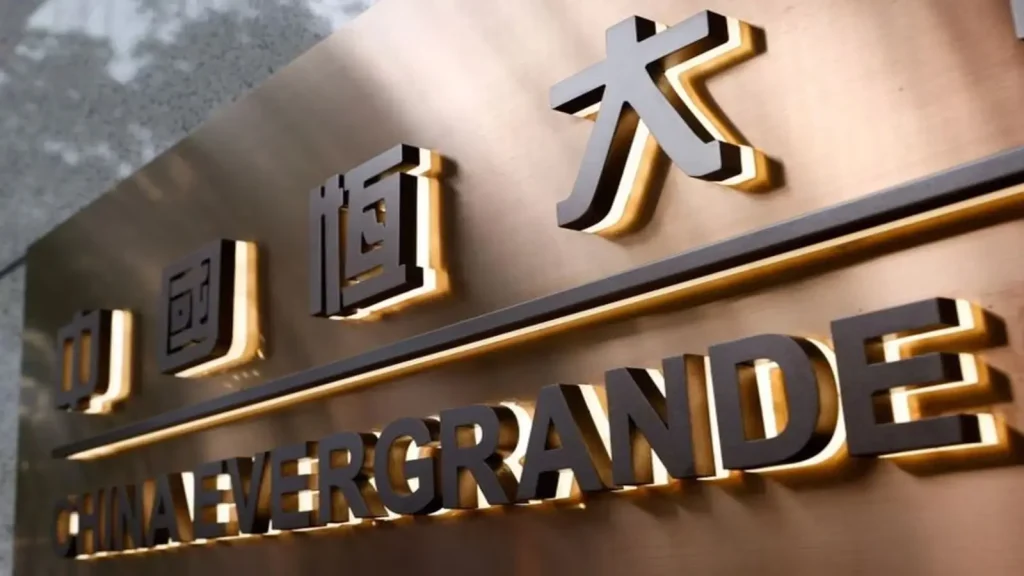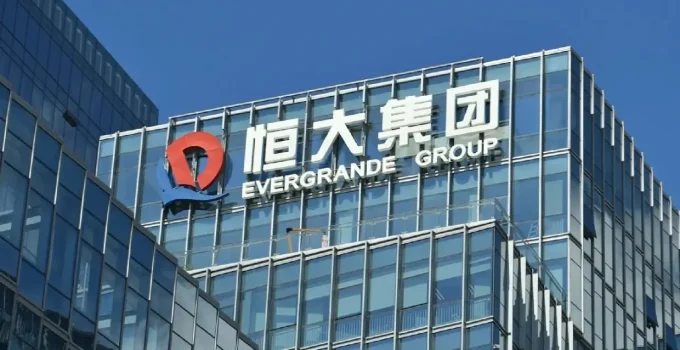As the liquidation of Evergrande unfolds, China’s property sector faces a seismic shift that could have significant implications for both the domestic market and global creditors. This article delves into the consequences of Evergrande’s unraveling and explores its impact on China’s property industry and the wider global economy.
Impact on China’s Property Sector
Evergrande, once China’s second-largest property developer, has been grappling with a mounting debt crisis that has sent shockwaves throughout the industry. As the company teeters on the brink of collapse, investors and creditors worldwide are anxiously watching the situation unfold.
The potential liquidation of Evergrande would have profound implications for China’s property sector. Firstly, it could lead to a significant slowdown in construction activities. Evergrande’s vast portfolio of ongoing projects would come to a halt, creating a ripple effect that could impact the entire industry. This would not only affect the company’s employees but also the numerous contractors and suppliers dependent on Evergrande’s business.
Secondly, the liquidation could result in a downturn in housing prices. Evergrande’s extensive presence in the real estate market means that its collapse would flood the market with an excess supply of properties. As a result, this oversupply could drive down prices, potentially leading to negative equity for homeowners and exacerbating the already existing affordability issue in China.
Lastly, the potential risks to financial stability cannot be overlooked. Evergrande’s enormous debt burden, estimated to be around $300 billion, has raised concerns about the broader implications for China’s financial system. If the company defaults on its obligations, it could trigger a cascade of defaults and create a domino effect within the industry. This could potentially destabilize other property developers and financial institutions, leading to a broader systemic risk.

Global Implications of Evergrande’s Liquidation
The repercussions of Evergrande’s potential liquidation extend beyond China’s borders. Global creditors, including banks and bondholders, are closely monitoring the situation and assessing their exposure to the company. The magnitude of Evergrande’s debt and its interconnectedness with the global financial system raise concerns about potential losses and contagion effects.
International banks that have extended credit to Evergrande are particularly vulnerable. The default risk associated with the company’s debt could lead to significant losses for these institutions, impacting their profitability and overall stability. Moreover, the interconnectedness of the global financial system means that the effects of Evergrande’s collapse could spread to other sectors and countries, further amplifying the potential risks.
Investors in Evergrande’s bonds are also facing significant uncertainty. The company’s bonds, once considered relatively safe investments, have now become highly risky. The potential default could result in substantial losses for bondholders, both institutional and retail investors, who are left grappling with the uncertainty of recovering their investments.
Evergrande’s Debt Crisis and Its Effect on Creditors
Evergrande’s debt crisis can be traced back to its aggressive expansion and heavy reliance on debt financing. The company’s rapid growth over the years was fueled by extensive borrowing, primarily through the issuance of bonds and other debt instruments. However, as the Chinese government implemented stricter regulations on the property sector and tightened credit conditions, Evergrande’s ability to service its debt became increasingly challenging.
The company’s financial struggles have been exacerbated by its diversified business model, which includes ventures into non-property sectors such as electric vehicles and theme parks. These ventures have not only burdened Evergrande with additional debt but have also diverted resources away from its core business, further weakening its financial position.
As Evergrande’s financial woes deepened, the company began facing difficulties in meeting its debt obligations. Missed interest payments and delayed repayments raised concerns among creditors, triggering a downward spiral in investor confidence. The mounting uncertainty surrounding the company’s ability to repay its debt has ultimately led to a loss of trust in Evergrande, exacerbating its liquidity crunch and pushing it closer to the precipice of liquidation.
Government Intervention and Potential Solutions
Amidst the growing concerns, the Chinese government has stepped in to prevent a disruptive chain reaction. The government’s priority is to ensure financial stability and minimize the potential systemic risks posed by Evergrande’s collapse. To address the crisis, authorities have implemented various measures aimed at containing the fallout and providing support to affected stakeholders.
One of the key interventions has been the encouragement of property developers to step in and acquire Evergrande’s assets and projects. This approach aims to mitigate the disruption caused by the company’s liquidation and ensure the completion of ongoing projects. By facilitating the transfer of assets to other developers, the government hopes to minimize the impact on homebuyers, employees, and the broader industry.
Additionally, the government has signaled its willingness to support the affected creditors and investors. This could involve providing financial assistance or facilitating negotiations between Evergrande and its creditors to restructure the company’s debt. The government’s intervention is crucial in restoring confidence in the market and preventing a widespread panic among investors and creditors.
How Evergrande’s Liquidation May Affect the Real Estate Market
Evergrande’s liquidation could have significant implications for the real estate market in China. The oversupply of properties resulting from the company’s collapse could lead to a decline in housing prices, as mentioned earlier. This could present an opportunity for prospective homebuyers who have been struggling with affordability issues. However, it also poses risks to existing homeowners who may experience a decline in the value of their properties, potentially leading to negative equity.
Moreover, the slowdown in construction activities caused by Evergrande’s liquidation could impact the broader economy. The real estate sector plays a vital role in China’s economic growth, contributing to employment, investment, and consumption. A significant downturn in the sector could have spillover effects on other industries, potentially leading to a slowdown in economic growth.
On the other hand, the liquidation of Evergrande may create opportunities for other property developers to fill the void left by the company. Competitors with stronger financial positions and sound business models could potentially expand their market share and benefit from the market consolidation. This could lead to a more balanced and sustainable property market in the long run.

Strategies for Investors and Creditors to Mitigate Risks
For investors and creditors exposed to Evergrande, navigating the risks associated with the company’s liquidation requires careful consideration and proactive measures. Here are some strategies to mitigate potential losses and protect investments:
- Diversify Portfolio: Investors should diversify their portfolios to reduce concentration risk. Spreading investments across different asset classes and geographies can help mitigate the impact of a single company’s default.
- Stay Informed and Seek Professional Advice: Keeping a close eye on the developments surrounding Evergrande and the broader property market is crucial. Seeking advice from financial professionals who specialize in the Chinese market can provide valuable insights and guidance in navigating the complexities of the situation.
- Assess Counterparty Risk: Creditors should assess their exposure to Evergrande and other vulnerable Chinese property developers. Conducting thorough due diligence on counterparties and closely monitoring their financial health can help identify potential risks and enable proactive risk management.
- Consider Legal Remedies: Creditors should explore legal options available to protect their interests and recover potential losses. Engaging legal counsel experienced in Chinese bankruptcy and restructuring laws can provide valuable guidance in pursuing legal remedies.
- Evaluate Credit Default Swaps (CDS): Investors holding credit default swaps should carefully assess the terms and conditions of the contracts. Understanding the potential payout and counterparty risk associated with CDS positions can help investors make informed decisions.
Lessons Learned from Evergrande’s Downfall
Evergrande’s downfall serves as a cautionary tale for investors, creditors, and regulators. Several key lessons can be drawn from the company’s collapse:
- Debt Sustainability: Companies that rely heavily on debt financing must ensure the sustainability of their debt levels. Aggressive expansion fueled by excessive borrowing can lead to severe financial strain and increase the vulnerability to economic downturns.
- Regulatory Oversight: Regulators play a crucial role in maintaining financial stability and preventing excessive risk-taking. Strengthening regulatory oversight and implementing effective risk management measures can help mitigate the potential impact of a crisis.
- Market Transparency: Transparency in situs toto financial reporting and disclosure is essential for maintaining investor confidence. Companies should provide accurate and timely information to market participants, enabling them to make informed decisions.
- Corporate Governance: Sound corporate governance practices are vital for ensuring the long-term sustainability of companies. Effective risk management, independent oversight, and responsible decision-making at all levels of the organization are key elements of good corporate governance.
Outlook for the Future of China’s Property Sector
The future of China’s property sector remains uncertain in the wake of Evergrande’s liquidation. While the immediate consequences are likely to be challenging, the crisis also presents an opportunity for the Chinese government to address long-standing issues within the sector and implement reforms that promote stability and sustainability.
The government’s intervention and measures aimed at mitigating the impact of togel online is crucial in restoring confidence and stabilizing the market. Stricter regulations on debt financing, increased oversight, and improved risk management practices can help prevent similar crises in the future and foster a healthier and more resilient property sector.
In the long term, China’s property sector is expected to continue playing a significant role in the country’s economic growth. The urbanization trend, rising middle-class population, and increasing demand for housing provide a strong foundation for the sector’s recovery and growth.
However, the sector is likely to undergo a period of consolidation and restructuring as weaker players are weeded out, and stronger companies emerge. This process may result in short-term challenges but could pave the way for a more sustainable and stable property market in the future.
Evergrande’s potential liquidation has sent shockwaves through China’s property sector and raised concerns among global creditors. The consequences of its collapse could lead to a slowdown in construction, reduced housing prices, and risks to financial stability. Investors and creditors need to stay informed and take proactive measures to mitigate potential losses.
The Chinese government’s intervention and measures aimed at containing the crisis are crucial in restoring confidence and preventing a broader systemic risk. The lessons learned from Evergrande’s downfall should inform regulatory reforms and industry practices to promote stability and sustainability in the future.
While the immediate outlook for China’s property sector may be challenging, the long-term prospects remain positive. The sector’s importance in driving economic growth and the government’s commitment to addressing the issues within the industry provide hope for a resilient and sustainable property market in the years to come.
Read also: Neuralink Breakthrough: First Human Brain Implant Signals a New Era in Neurotechnology




